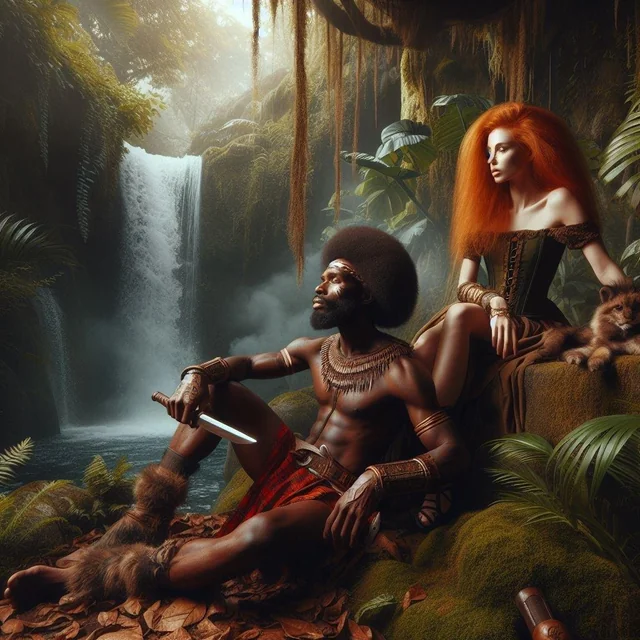Black Coral Roatan Mangrove Cleanup Begins with Eco Education Programs!
- blackcoralinc2021

- Jul 9, 2024
- 3 min read


4 Ways Mangroves Protect The Future of Shorelines Like Roatan Honduras!
Mangroves play a crucial role in coastal ecosystems by providing a habitat for a diverse range of species, including fish, birds, and other wildlife. The intricate root systems of mangroves help stabilize coastlines, reducing erosion and protecting against storm surges and tsunamis. These forests act as a buffer between land and sea, absorbing excess nutrients and pollutants, thereby improving water quality. Additionally, mangroves are valuable carbon sinks, storing large amounts of carbon in their biomass and sediment, thus helping mitigate climate change.

Furthermore, mangroves have significant economic importance, supporting fisheries, tourism, and coastal communities. They serve as nurseries for many commercially important fish species, contributing to local livelihoods and food security. Tourists are drawn to the unique beauty of mangrove forests, providing opportunities for eco-tourism and sustainable development. Moreover, traditional practices and knowledge associated with mangroves are passed down through generations, enriching cultural heritage and promoting conservation efforts.

The upper reaches of mangrove forests form a canopy of leaves and branches that provides an important space for numerous bird species, including herons, egrets, ibis, spoonbill, and some migratory birds, to nest and breed. Certain species of monkey and tree climbing crabs also take advantage of this leafy home to find food and shelter.
At the base of the intricate mangrove forest ecosystem, a fascinating and crucial specialized root system plays a pivotal role in supporting a diverse array of marine life. The red mangrove, scientifically known as Rhizophora mangle, showcases a remarkable adaptation where its prop roots not only anchor the tree firmly in the soil but also extend into the water column, creating a unique and vital nursery habitat. This habitat serves as a sanctuary for larvae and juveniles of numerous marine organisms, nurturing protecting them during their most vulnerable stages of life.

Among the beneficiaries of this protective environment are various commercially important species such as shrimp, crabs, snapper, and surgeonfish. These marine creatures rely on the mangrove roots as a safe haven to carry out essential reproductive activities, including depositing their eggs. The prop roots of the red mangrove provide a secluded and secure space that shields the hatched and developing young from potential predators, offering them a higher chance of survival.
Furthermore, the intricate root system of mangroves serves as more than just a protective barrier. It also acts as a substrate for small sponges and barnacles to attach, creating a microhabitat that supports additional levels of biodiversity within the mangrove ecosystem. This symbiotic relationship between the mangrove roots and various marine organisms highlights the interconnectedness and importance of these coastal habitats in sustaining marine life and fostering biodiversity.

In conclusion, mangroves are not just plants; they are dynamic ecosystems that offer a multitude of ecological, economic, and cultural benefits. Their resilience and adaptability to harsh coastal conditions make them a vital component of our planet's biodiversity and a symbol of the intricate interconnectedness of life on Earth.
So what is really important about mangrove forests? Sure, they’re unique, but why should people care? Because these plants are adapted to grow under conditions that are too harsh for other terrestrial species, they provide a number of extremely important ecosystem services that most other plants cannot. Ecosystem services

Black Coral Inc. initiated a program in 2023 to send its staff members to the Buddy Dive Academy in Bonaire, a renowned professional dive training center. The academy holds the prestigious title of being a PADI 5-star Career Development Center, one of only 100 such centers worldwide and the sole one in the southern Caribbean region. Atlanta Undersea Explorers' members accompany students and staff, providing personalized training with Master Divers.

Supplementing the comprehensive classroom instruction at Buddy Dive Academy, which offers dive training at all levels and in multiple languages, Black Coral Inc. encourages individuals interested in reef reclamation, seeding, and beach restoration to explore a range of dive training courses, from recreational to professional levels. The courses range from introductory programs like Discover Scuba Diving (DSD) and Open Water Scuba certification to advanced professional level Instructor Development Courses (IDC). Furthermore, in 2025, Black Coral Inc. will introduce a variety of additional dive training opportunities on the Island of Roatan for those who have completed their initial training in Bonaire.

These eco-educational tourism packages will offer specialized training beyond standard PADI certifications, aiming to provide young individuals with the opportunity to pursue careers in diving, including becoming a tec diver or a certified dive instructor.





Comments